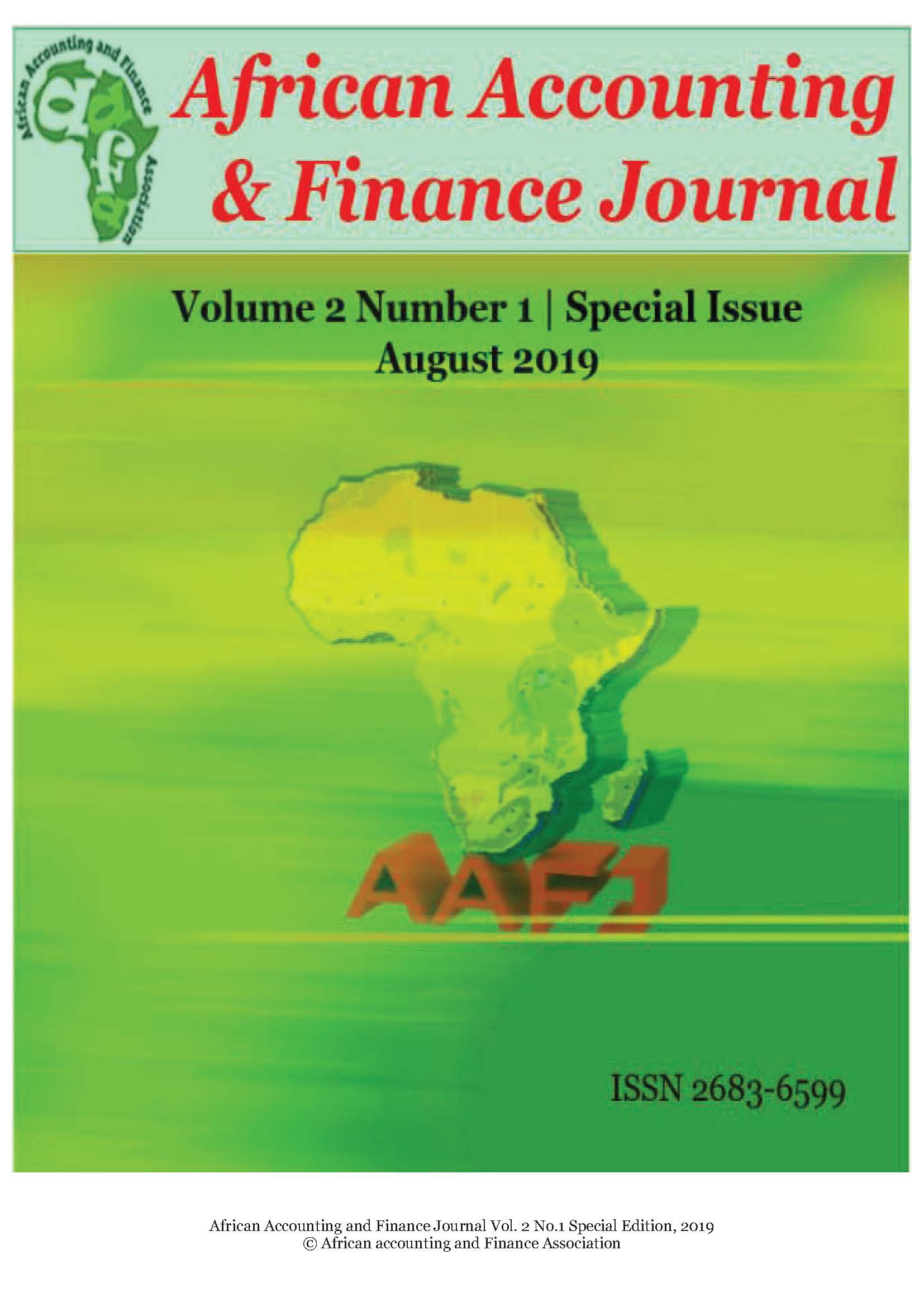Culture, Legal origin and the Asymmetric Earnings timeliness before and after the adoption of IFRSs
DOI:
https://doi.org/10.26686/aafj.v2i1.9741Keywords:
IFRS, Asymmetric Earnings Timeliness, Prudence Accounting Principle, Culture, Legal OriginAbstract
Purpose: This paper examines whether culture and legal origin influence the role of IFRS on the asymmetric earnings timeliness.
Design/Methodology/Approach: The research uses panel data of 330 listed firms from four African countries namely; Egypt, South Africa, Kenya and Morocco for a period of eight years from 2002 to 2009. The choice of this period is based on the fact that many African countries started adopting IFRS in 2005 as a result of the European Union accounting regulation number 1606/2002/EC of 2002 which required all public companies listed on stock markets to consolidate their financial accounts using IFRS with effect from January 2005.
Findings: The findings show that firms from common law countries are timelier in recognizing bad news but less timely in recognizing good news compared to firms from code law countries, consistent with prior studies. Nevertheless, the overall recognition timeliness of earnings measured through the adjusted R2 decreases more in common law than code law firms post-IFRS. Further, the results indicate that culture is associated with a reduction in loss and incremental loss recognition timeliness prior and post IFRS. However, we find that conservative culture is associated with greater gains recognition timeliness particularly before IFRS.
Practical implications: The findings should be of interest to firm managers, policy makers and accounting standard setters such as IASB professional accounting bodies. Further, the results imply that the usefulness of IFRS through asymmetric earnings timeliness and its implementation are affected by culture and legal origin.
Research Limitation: This research is limited to four African countries and 330 listed firms. Future research may increase the sample in order to increase diversity and get more insight on the impact of culture and legal environment on asymmetric earnings timeliness.
Originality/value: The study contributes to the meager literature on the efficacy of IFRS in emerging economies with different institutional settings, culture and legal origin.
Downloads
Downloads
Published
Issue
Section
License
Papers and contributions become the legal copyright of African Accounting and Finance Association unless otherwise agreed



